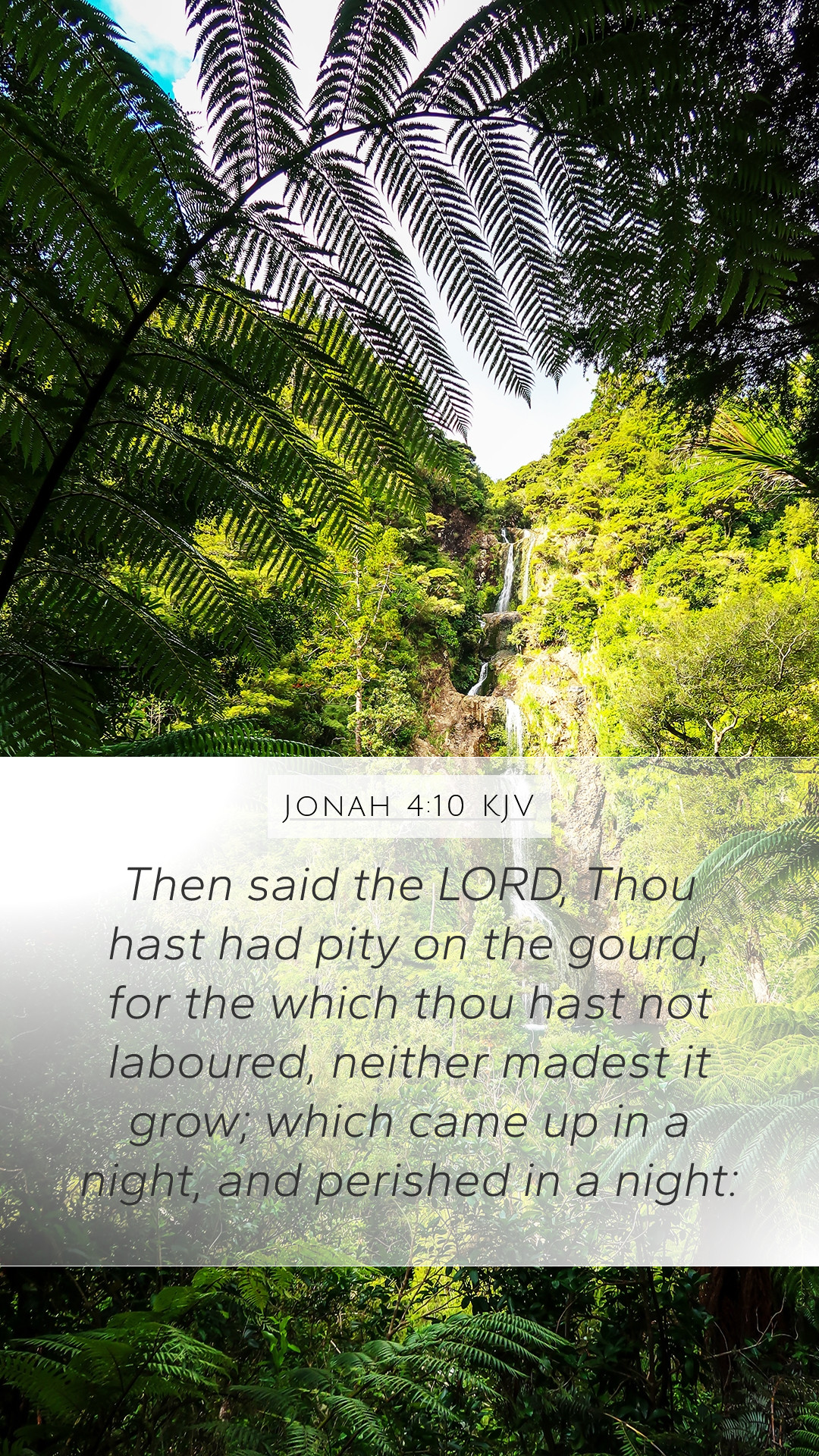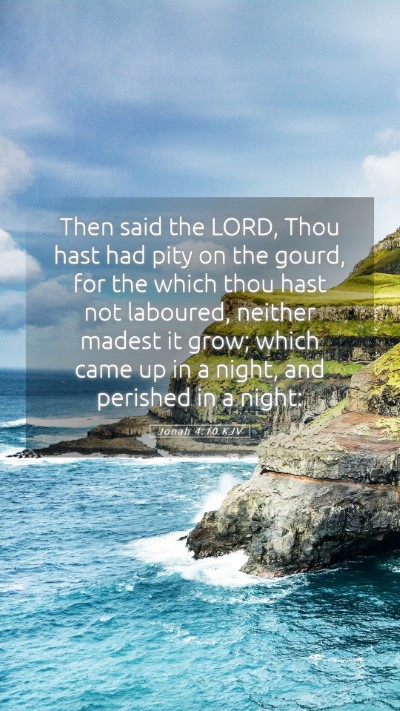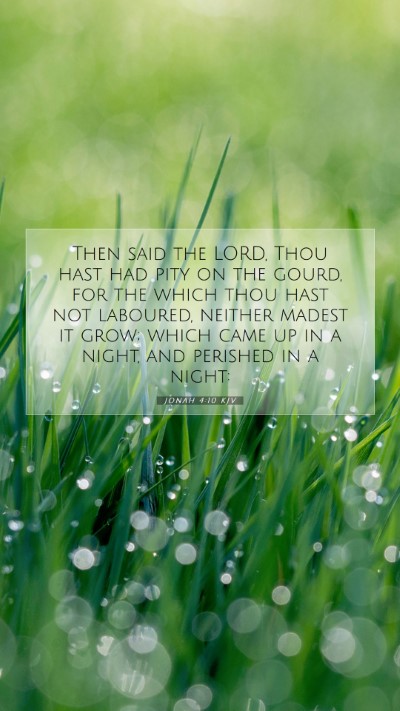Old Testament
Genesis Exodus Leviticus Numbers Deuteronomy Joshua Judges Ruth 1 Samuel 2 Samuel 1 Kings 2 Kings 1 Chronicles 2 Chronicles Ezra Nehemiah Esther Job Psalms Proverbs Ecclesiastes Song of Solomon Isaiah Jeremiah Lamentations Ezekiel Daniel Hosea Joel Amos Obadiah Jonah Micah Nahum Habakkuk Zephaniah Haggai Zechariah MalachiJonah 4:10 Meaning
What is the meaning of Jonah 4:10?
Then said the LORD, Thou hast had pity on the gourd, for the which thou hast not laboured, neither madest it grow; which came up in a night, and perished in a night:
Jonah 4:10 Bible Verse Meaning
Bible Verse Commentary: Jonah 4:10
The verse Jonah 4:10 states:
"Then said the Lord, Thou hast had pity on the gourd, for the which thou hast not laboured, neither madest it grow; which came up in a night, and perished in a night."
Understanding the Meaning of Jonah 4:10
This verse emerges at the climax of a narrative filled with themes of mercy, compassion, and the nature of God's relationship with humanity. God's statement to Jonah illustrates the prophet's misplaced priorities and concerns.
Contextual Overview
To comprehend Jonah 4:10 accurately, it is vital to engage with its context. After Jonah's initial reluctance to preach to Nineveh, God demonstrates His mercy by sparing the city from destruction following their repentance. However, Jonah becomes displeased and angry over this divine mercy, reflecting the struggle between human emotions and divine compassion.
Key Insights from Public Domain Commentaries
- Matthew Henry's Commentary: Henry emphasizes the irony in Jonah's sorrow over the gourd's withering while disregarding God's concern for Nineveh, a city with numerous inhabitants. This discrepancy highlights Jonah's self-centered viewpoint, focusing on his comfort rather than the fate of others.
- Albert Barnes' Notes: Barnes points out that the gourd symbolizes transient comfort. Jonah's regret for its loss mirrors a common human response—valuing the ephemeral over the eternal significance of souls. The lesson derived is that God’s grace extends beyond personal biases.
- Adam Clarke's Commentary: Clarke further expands on this notion by suggesting that Jonah’s attachment to the gourd is an analogy for humanity's attachment to worldly matters. He notes that God, without contending against Jonah’s limited view, reiterates His omnipotence and compassion for creation.
Theological Implications
Jonah 4:10 invites believers to reflect on their priorities in life. It poses compelling questions regarding what we clamor for and whom we genuinely care about. The gourd's brief existence serves as a metaphor for transient concerns versus divine compassion that seeks to redeem and restore.
Application in Daily Life
In applying the teachings of this verse, one might consider how often agenda and comfort overshadow the call to show compassion and love towards others. Jonah's story challenges believers to prioritize spiritual growth and outreach over personal comfort.
Cross References
For a deeper understanding, consider the following cross-references:
- Matthew 9:36: This verse captures Jesus' compassion for the crowds, aligning with God's unyielding grace toward Nineveh.
- Lamentations 3:22-23: Highlights God's consistent mercy, reinforcing the theme found in Jonah's narrative.
- Luke 15:20-24: The parable of the prodigal son reflects God's joy over repentance and His willingness to forgive.
Conclusion
In summary, Jonah 4:10 serves as a multifaceted scripture ripe for exploration within Bible study groups, fostering rich discussion on the nature of compassion and the divine heart of God. It invites believers into a deeper understanding of Scripture by examining our own attitudes towards mercy and judgment. Whether seeking bible verse meanings or probing into the historical context of Bible verses, Jonah’s message remains timeless, urging us to expand our hearts toward those around us.


